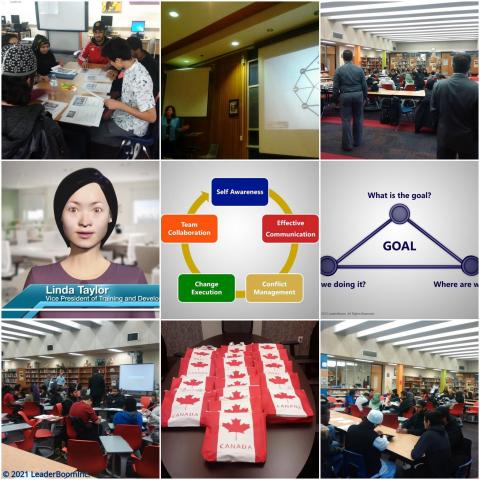
The world is changing and those changes are accelerating rapidly.The pillars of traditional hierarchical thinking are crumbling thanks to the power of social networks, increased digital transparency, focus to build healthier communities, create new pathways for economic development and examine dramatic shifts in global demographics.
According the World Fact Book, the global population is 7.7 Billion and the median age is 31 Years. Business transformation and workplace evolution are key areas of global focus, and yet it is not the only trend on the horizon. According to CIBC World Market Reports, prevailing global pressures are increasing demand for partnerships between smaller and larger firms, government agencies and academic centers to create temporary clusters for work-integrated experiential learning.
From our observation of this phenomena, cross-sector partnerships are forming at a phenomenal pace to develop strategies for ‘just in time’ workforce solutions that encourage knowledge sharing and make it easier for the next generation to build their work potential networks and maximize their skill potential.
What is experiential learning? Experiential learning can take a variety of forms to include; Co-operative Education, Community Service-Learning, Applied Research Projects, Apprenticeships and Internships.
By example, the Canadian organization Riipen (www.riipen.com), founded in 2014, is a fast growth technology platform that facilitates micro-experiential learning opportunities by connecting students to industry partners (i.e. local companies, community organizations, government agencies, NGOs) and assign real-time work-related or social research projects designed by instructors.
Another innovative company example,with award-winning perspectives on the ‘future of work’, is Lärarförmedlarna-Sweden’s top talent platform for teachers and schools. Will the global trend for increased demand in work-integrated learning experiences (onsite or digital),be sustainable in the future?If yes, what could be several of the benefits?
- Increase student engagement in diverse learning and their awareness of the global workforce
- Real-time sharing of perspectives from students and educators to community and industry
- Customized learning inspires innovative thinking and group motivation
- Build youth self-awareness (Who Am I? What Are My Unique Skills? Where Am I Going?)
- Improve potential for community economic viability, sustainability, research and development
- Increase student agility to adapt to accelerated change and navigate between programs, industries and community agencies
- Experiential learning increases youth potential for academic and life success.
- Connect youth to the global market (domestic and international employers).
The world is changing at a rapid pace and becoming increasingly complex to navigate. Creating sustainable pathways that provide real-time opportunities to share years of experience and knowledge across generations will be essential for maximizing the skill potential in the next generation. We would love to hear your perspectives on this subject and invite you to email us at info@leaderboom.com.
This article was prepared by Ann Marie MacDougall, President and Founder of LeaderBoom Inc., a leadership development firm based in Toronto (www.leaderboom.com) and focused to empower the full potential of global leaders, teams, organizations and communities.
